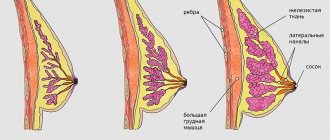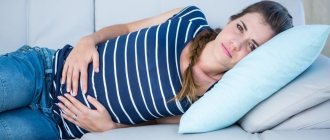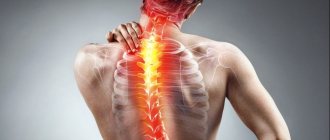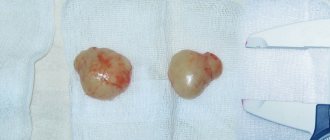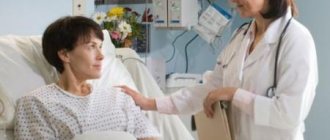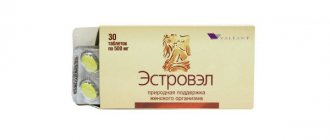Natural Cause of Breast Pain During Menopause
You should know that doctors call any pain, as well as discomfort in the chest due to hormonal imbalance, mastodonia. The mammary glands, by their nature, are a hormonally dependent organ. Thanks to hormones, girls' breasts begin to grow during puberty.
During reproductive age, the influence of hormones leads to regular changes in the mammary glands. Therefore, many women experience various painful symptoms in the breasts before menstruation or ovulation. When, under the influence of hormones, breasts begin to enlarge during pregnancy or lactation, the woman also feels pain.
All situations considered are associated with a hormonal surge. But why does the chest hurt during menopause, when the level of hormones in the body gradually drops. Firstly, at the beginning of menopause, the female body experiences a hormonal storm. The amount of hormones fluctuates at first, and only then begins to decrease.
Secondly, a decrease in the amount of sex hormones leads to a decrease in the lobules of the mammary glands and swelling of the adjacent tissues. It is this reverse process that is accompanied by various pain sensations. A decrease in the level of hormones in the body of women during menopause provokes swelling, discomfort or pain in the mammary glands.
Expert opinion
Alexandra Yurievna
General practitioner, associate professor, teacher of obstetrics, work experience 11 years.
All representatives of beautiful bodies, without exception, have breasts that are sensitive to hormonal changes during menopause. But the manifestations are purely individual. Some experience mild breast soreness, which is easily tolerated, while others experience pain so severe that medication is required.
When is a visit to the doctor necessary?
It is very important for a woman to undergo a systematic examination by a doctor.
Gynecologists say that such examinations should be done 2-3 times a year, and in the presence of various diseases, the doctor makes appointments every 2-3 months to monitor the disease and take tests.
In addition, you need to monitor the condition of the mammary glands in order to promptly identify signs of possible diseases caused by changes in the body, such as mastopathy. To do this, mammologists perform breast ultrasound to ensure the woman’s health.
Representatives of the fair sex who have reached menopause (approximately between the ages of 45 and 55 years) should be observed by a doctor. This is necessary to exclude the possibility of the formation of pathologies, and the doctor will also be able, based on your complaints, to prescribe medications and painkillers so that menopause is not so painful.
In addition to the fact that the doctor conducts an examination, his examination can protect you from possible cancer , because it is during menopause that a hormonal imbalance in the body can cause the formation of tumors.
When you should definitely see a doctor:
Associated causes of chest pain
There are many reasons why breasts may hurt during menopause.
Therefore, every woman needs to know the symptoms of a condition that requires a mandatory visit to a specialist:
- For heart disease. When a woman feels tightness in her chest, burning sensation, rapid heartbeat, and also experiences shortness of breath, she needs to see a cardiologist as soon as possible. Such chest pain during menopause signals the development of heart disease.
- With the development of osteoporosis. One of the symptoms of exacerbation of osteoporosis is chest pain during menopause, which is very similar to heart pain. Under no circumstances should the disease be neglected. The therapist will refer you for appropriate tests, and, if necessary, to a specialist.
- For breast mastopathy. This is a benign disease that manifests itself in the pathological proliferation of connective tissue of the mammary gland. Why does this disease develop during menopause? Can mastopathy begin during menopause? We will answer these questions in our publication.
If your nipples hurt during menopause, then you need to take a pregnancy test and visit a gynecologist. During this phase, menstruation still comes, and the woman can become pregnant. Can nipples hurt for other reasons? This occurs due to a natural decrease in the amount of female hormones progesterone.
Important points
Do breasts hurt during menopause in other situations?
Osteochondrosis during menopause can worsen and cause chest pain.
There is a list of reasons why mammary glands hurt during menopause:
- The woman had surgery on the mammary glands or breasts.
- The lady is under stress. Changes in hormonal balance during menopause change the psycho-emotional state. She is in a state of anxiety, becomes whiny and irritable. Such emotions, enhanced by stress, disrupt the chemical reactions occurring in the tissues. As a result, a woman with menopause has breast pain.
- Taking medication daily for some illness. Chest pain during menopause can be caused by medications, especially hormonal ones. After all, they interfere with the chemical reactions that occur in the female body.
Alcohol and smoking abuse will lead to disruption of blood supply to all organs, including the mammary glands. Limited access to oxygen will interfere with normal metabolism and cause pain.
How to relieve the condition
To alleviate the condition, it is recommended to change your lifestyle, wear comfortable underwear, clothes, and adjust your diet. It is not recommended to resort to traditional medicine methods, as this can be harmful to health. Among the medicines they resort to:
- special vitamin and mineral complexes;
- sedatives;
- painkillers;
- hormone replacement therapy.
Lifestyle
A significant role is given to adjusting one’s own behavior and attitude towards the onset of menopause. Menopause is a physiological condition, so it should be treated as a norm, and not as a pathology or disease. This is a new period in a woman’s life - a time of maturity.
Recommendations for relief:
- Spend more time outdoors. Staying outside for at least 1.5 hours a day improves oxygen saturation of tissues, has a beneficial effect on metabolic processes and the state of the nervous system.
- More movement. It is advised to engage in your favorite active sports, yoga, dancing, etc. But you need to avoid sudden movements - during menopause, the likelihood of injury increases significantly. Regular physical activity will speed up metabolic processes in the body, effectively utilize incoming nutrients, reduce the proportion of adipose tissue, and improve blood supply to organs.
- Refusal to use tobacco in any form.
Lingerie and clothes
Experts recommend wearing comfortable clothes made from natural fabrics that do not restrict movement. Otherwise, the mammary glands are compressed, the flow of blood and lymph, the processes of evaporation, and skin respiration are disrupted; wearing such clothing for a long time increases the risk of developing breast pathologies.
Wearing a bra normalizes blood and lymph flow, metabolism, reduces tissue trauma, prevents the development of stagnant processes, excessive tension in the chest muscles, and sagging breasts. The bra should support the glands, but not squeeze them. If necessary, you can sleep in it.
Diet
The following recommendations will help reduce the manifestations of pathological symptoms:
- It is necessary to reduce the content of animal fats, replacing them with vegetable ones. But it is forbidden to completely abandon their use;
- reducing salt intake to 2.5-3 g per day;
- reduce the share of canned, fried, smoked, too hot and spicy foods;
- increase the consumption of greens, vegetables, fruits, cereals, berries;
- replace sugar with honey;
- reduce consumption of caffeine-containing products;
- minimize or stop drinking alcohol in any form;
- take special vitamin and mineral complexes for the menopause.
Medications
Taking medications depends on the severity of menopause manifestations, individual characteristics of the course, and is possible only with a doctor’s prescription. Use:
- vitamin-mineral complexes - help alleviate symptoms with mild to moderate severity;
- sedatives - Novo-pasit, Notta, Persen, Sedavit, tinctures of valerian, motherwort, etc. In severe cases, it is possible to use antidepressants;
- painkillers. The most commonly used are standard analgesics (Acetylsalicylic acid, Analgin, etc.), non-steroidal anti-inflammatory drugs (Ibuprofen, Eurofast, Ibunorm, etc.);
- hormonal drugs. Recognized as the most effective in terms of achieving a lasting effect. The selection of the drug is individual.
Changes in the mammary glands during menopause are a natural age-related process. You can correct the course of menopause and alleviate the condition both with medication and without taking medications. But if you have concerns about your health, it is recommended to seek medical help as soon as possible.
Sources:
https://ilive.com.ua/health/izmenenie-molochnyh-zhelez-pri-klimakse-boli-nabuhanie-zhzhenie-uplotnenie-pokalyvanie_122697i88423.html https://klimaksinfo.ru/klimaks/bol-v-molochnyx-zhelezax -pri-klimakse.html https://www.mammologia.ru/simptomy/kak-menyayutsya-i-pochemu-bolyat-molochnye-zhelezy-pri-klimakse/
Briefly about mastopathy
Mastopathy is a benign pathology that requires increased attention due to the possibility of developing a malignant tumor.
The following reasons for the development of the disease are identified:
- hormonal imbalance in the female body caused by a malfunction of the ovaries;
- problems in the functioning of the liver or adrenal glands;
- stress, especially long-term;
- inflammatory and infectious diseases of the reproductive system;
- abortions;
- rapid cessation of breastfeeding.
Check yourself for mastopathy symptoms!
The disease can also be triggered by a malfunction of the pituitary gland, which produces the hormone prolactin, which stimulates milk production. When stimulation does not occur during the feeding period of the baby, swelling and engorgement of the breast will be observed, accompanied by discomfort and pain.
Expert opinion
Alexandra Yurievna
General practitioner, associate professor, teacher of obstetrics, work experience 11 years.
The disease has two stages: initial and nodular. It is important to identify the disease at the very beginning, when conservative treatment can be applied.
To do this, women need to know the signs of mastopathy at the initial stage:
- the mammary gland grows due to an increase in the amount of connective tissue;
- Very small nodules are formed (they are called millet-like).
If a woman has breast pain during menopause and there is a suspicion of mastopathy, then she should consult a mammologist. He will be able to detect breast fibroadenoma (benign tumor). For preventive purposes, you should visit a specialist every few months.
Symptoms of the disease
The following symptoms of mastopathy at the initial stage are distinguished:
- A woman feels pain in the mammary glands before menstruation, which stops with its onset.
- Ball-shaped lumps periodically appear in the upper part of the chest.
The nodal stage has the following symptoms:
- Dense knots ranging in size from a pea to a walnut.
- Intense pain that radiates to the armpit or shoulder.
- The chest hurts when touched lightly.
- There may be clear or bloody fluid discharge from the breast.
- When palpating the mammary gland, the tissue feels grainy or lobed.
At the nodal stage, pain, as well as symptoms of breast mastopathy, do not disappear with the arrival of menstruation. This should alert a lady who has “delayed” her visit to the doctor.
Surgery is not the only option.
Alternative medicine
There are several alternative medicine methods that help with mastalgia. Herbs and herbal supplements are the most popular, although acupuncture, massage, homeopathy and hypnosis can be used. Women prefer herbs. In the case of herbal supplements, there are two types of herbs that are used in the treatment of chest pain: phytoestrogens and anti-estrogenic herbs. Phytoestrogens (flax, rice, soybeans, lentils, oats, barley, alfalfa) are similar in effect to estrogen. These herbs must be used first by introducing them into the body. However, the independent production of estrogen by a woman’s body may be disrupted.
Antiestrogenic herbs do not contain hormonal substances. They affect the cells of the pituitary gland and endocrine glands, forcing them to better produce hormones in the required dosage. This applies not only to estradiol, but also to progesterone and testosterone. Antiestrogenic medicinal herbs (comfrey, sparrowgrass, cowwort, rouge, black root, hemlock) can be considered safe, naturally, in the case when the body is capable of producing its own hormones.
In Europe, evening primrose oil, fish oil, and evening primrose oil are recommended for the treatment of chest pain.
What changes occur in the thyroid gland?
The thyroid gland during menopause can intensify its symptoms or add new ones. The menopausal period begins in women of mature age. Their thyroid gland by this time is already subject to certain age-related changes and can complicate the course of the 3 stages of menopause.
Let's consider all three stages:
- During premenopause, the decline of ovarian function may be accompanied by an increase in the size of the thyroid gland. A hypertrophied organ will produce large amounts of hormones that will be unnecessary for the body. Such a situation will be accompanied by the following set of manifestations: increased tearfulness; moodiness; irritability. Premenopause has similar symptoms. Therefore, the woman’s condition is aggravated by thyroid disease.
Menopause promotes gland disease. In a woman, the pituitary gland is activated, which provokes an increase in TSH secretions. A lady may face:- constant heat in the body;
- muscle weakness, tremors;
- accelerated heartbeat;
- weight loss with good appetite;
- constant thirst and heavy sweating;
- nervous condition. All manifestations are similar to menopausal symptoms. In order not to aggravate them, a woman needs to visit an endocrinologist and put her endocrine system in order.
- During postmenopause, the size of the thyroid gland decreases. Such changes are normal. But in some cases the reduction progresses. The following symptoms are identified in women with malnutrition: dry skin, weakening hair and brittle nails;
- memory deteriorates, performance decreases, fatigue appears faster;
- there is constant weakness and drowsiness;
- chills are often felt at a temperature that is comfortable for life.
Insufficiency of thyroid hormones can provoke the development of hypofunction in a woman.
Itching during menopause
Itching during menopause is provoked by hypothyroidism. With this disease, the speed of metabolic processes decreases, and accordingly, all functions of the female body slow down. When the level of estrogen in the body drops, itching is especially bothersome for women. This is due to the fact that disruption of the sebaceous glands provokes a decrease in the body’s ability to retain water.
A woman may have itching all over her body. Most of all, representatives of the fair half of humanity complain of itching in the intimate area. For many, it begins in the T-zone of the face and elbows, and then predominates in the chest, neck, back, and limbs. Sometimes itching can even be felt under the nails. Often ladies complain that they feel something crawling on their body. In order to remove this unpleasant symptom, they itch until they bleed.
To maintain good health, the fairer sex needs to regularly check the condition of the thyroid gland with an endocrinologist during menopause. A specialist will be able to recommend an effective form of treatment depending on the intensity of the itching and other menopausal symptoms that accompany it.
What you need to know about chest pain during menopause
Many women are interested in whether it is normal for breast pain to occur during menopause. According to statistics, not all representatives of the fairer sex experience pain in the mammary glands during menopause.
But it is useful for all ladies to know how their breasts can hurt during this period:
- The pain can be aching, burning or sharp.
- The breasts may become engorged, swollen, or swollen.
- There will be a feeling of heaviness in one or both breasts.
Not all women experience breast pain during menopause. But for many, hormonal imbalance provokes chest pain. Such manifestations can bring discomfort to an established way of life. A woman has difficulties during sexual intercourse, playing sports, vigorous physical activity, and even walking quickly.
How to do a breast self-examination.
Treatment with folk remedies
Traditional methods also help relieve pain during menopause.
Here are some useful recipes:
- The main remedy is a cabbage leaf compress . It's very easy to use. You just need to grease the leaf with honey or butter and apply it to your chest. You can do such manipulations at night, and in the morning just wipe your chest with a clean napkin. The result comes after 2-3 applications.
- if the first option does not suit you, you can grind the leaf into a paste and make a compress , which is applied to the chest for 2 hours, wrapped with a bandage.
- It is recommended to make various tinctures and decoctions that can be prepared from pumpkin or beets.
- if compresses are not suitable, you can make a homemade ointment from ground flax seeds and butter .
- You can also wipe your breasts with calendula oil , which soothes and relieves inflammation. The oil should be applied to the nipple halos in a small amount and left for several hours.
All folk remedies have their positive effect, but they require regular use over several months. Neither of these will eliminate symptoms with just a few uses.



